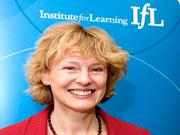Brilliant apprenticeships – a product of magic or expert training?

National Apprenticeships Week 2012 has already proved to be one of the most successful. Every day this week, we have heard from big names in British industry declaring their commitment to expanding their apprenticeship programmes for young people and adults. We have heard from the government about new initiatives to expand higher-level apprenticeships; cash incentives for small and medium-sized businesses; and the £250m employer ownership fund, which the prime minister announced this week.
Apprenticeships are not the only solution. We know that by themselves they will not deliver all the growth needed, nor will they – or should they – be the answer to our nation’s chronic problem of youth unemployment. But at this time, more than any I can remember in my 30 or so years in further education, our sector, including teachers and trainers, has come together and delivered, with impressive results. Partnerships are delivering new opportunities for workers and young people. Collectively, we have many reasons to feel proud.
This week, as we celebrate the achievements and successes of apprentices and the vital contribution they are making to our communities, businesses and economy, we should stop and think too about those who enable and empower them on their journey.
So I want to pay tribute to the tutors, trainers and assessors who have made the decision to give something back to their profession and who deliver record results, year in, year out, by being committed to brilliant teaching, training and learning, and to their own professional development.
More than 14,000 trainers and assessors in work-based learning are members of the Institute for Learning (IfL). Our third annual review of continuing professional development (CPD) – based on the experiences of more than 48,000 teachers and trainers who declared their CPD in 2011, evidence from in-depth focus groups, web-based surveys and other meetings – found that trainers in work-based learning carried out on average 61 hours of CPD in 2010-11, more than double the number required of them.
Between them, IfL members in work-based learning spent over 580,000 hours on professional development, a direct contribution to delivering the best teaching, training and learning experience for thousands of apprentices and other learners.
Nobody stays at the level of expert teacher or trainer without continuing appropriate and focused professional development throughout their working lives. Keeping up to date with their vocation – or as one trainer described it, “retaining technical competence when removed from industry” or in industry – was a top priority for members who took part in our review of CPD.
Beyond IfL’s regulatory role of monitoring that each teacher or trainer carries out at least 30 hours of CPD a year (pro rata for part-time trainers), which is typical of respected professional bodies, IfL seeks to provide support for effective CPD, offer evidence about what constitutes wise investment in CPD, and regularly disseminate information about national and international research on pedagogy to support our 86,000 members in their practice.
Doug Lemov’s extensive research on the very best teaching techniques in the United States, for example, and his distillation of the most impactful 49 teaching techniques are useful for workbased trainers and assessors. He shares proven methods for turning learners ‘who don’t know’ and ‘can’t try’ into learners practising and getting it right; proven methods for rewarding right answers with follow-up questions that test for reliability, and challenge and extend knowledge; proven ways to help learners format responses grammatically, in complete sentences, audibly and with confidence; and proven methods for effective planning and checking for understanding. All these are vital parts of the expert trainer’s professional repertoire.
Similarly, Professor John Hattie’s international research provides robust evidence about effective teaching practice and professional development that works. His latest work expands on an evidence-based approach to learning and achievement, and he stresses the need for professional learning communities.
Wise investment in CPD for individuals and providers is crucial and IfL’s very substantial evidence of effective CPD is a ‘must read’.
One powerful approach to CPD is undergoing professional formation with IfL to gain full professional status of Qualified Teacher Learning and Skills (QTLS) or Associate Teacher Learning and Skills (ATLS). So far, over 600 work-based trainers have gained QTLS or ATLS, and thousands more have expressed an interest.
As apprentices come centre stage for National Apprenticeship Week, we celebrate the dedication of the trainers, tutors and assessors whose commitment to their own professional development supports the delivery of high-quality apprenticeships and other work-based training.
Toni Fazaeli is the chief executive of the Institute for Learning (IfL), the professional body for teachers, trainers, tutors and student teachers across the further education and skills sector
Read other FE News articles by Toni Fazaeli:
FE teachers and trainers learning aloud
To every thing there is a season
FE and school teachers could consign skills shortcomings and shortages to history











Responses